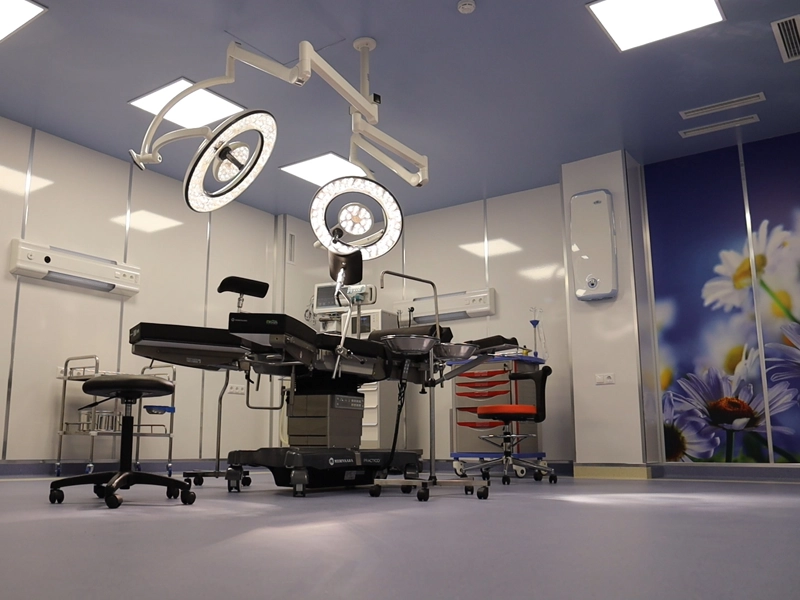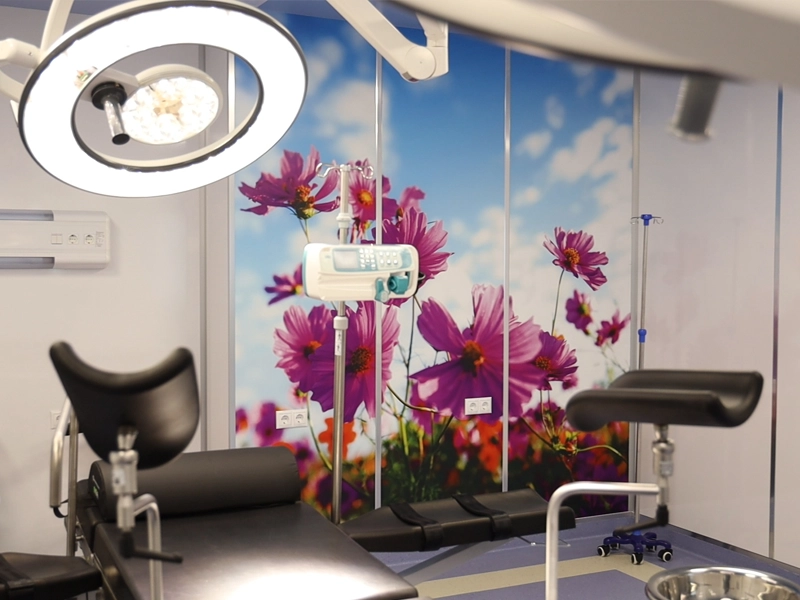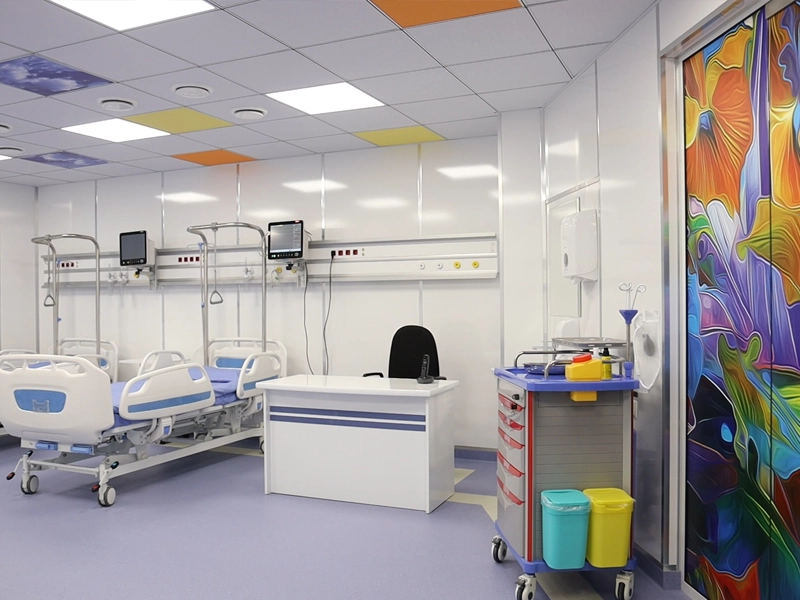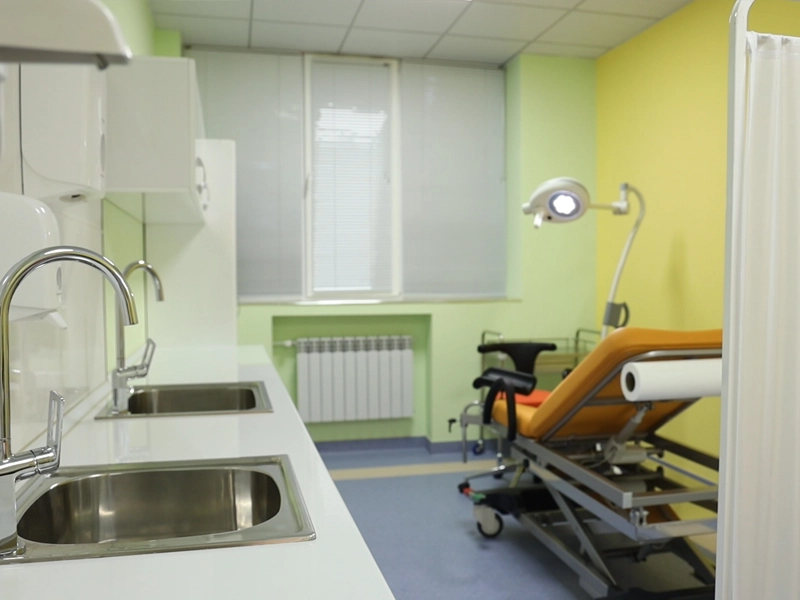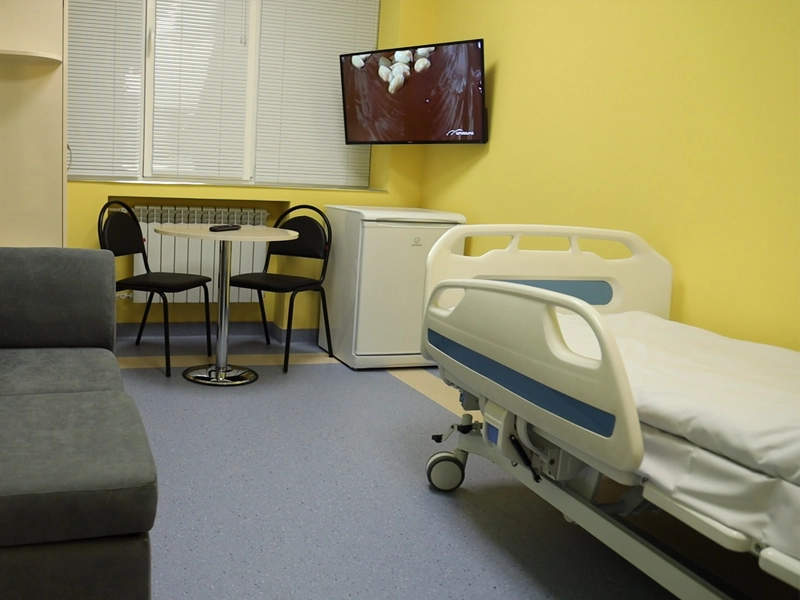In the Department of Gynecology surgical and conservative treatment of gynecological diseases is carried out. Conservative treatment is used for the treatment of menstrual disorders, inflammatory diseases of the female genital organs, infertility, miscarriages and others.In the Department of Gynecology the examination and treatment of patients with the following pathologies are carried out:
- adenomyosis and external genital endometriosis
- benign and malignant tumors of the genitals
- chronic pelvic pain
- reproductive disorders (infertility, miscarriage, ectopic pregnancy)
- pelvic inflammatory diseases
- intrauterine pathology (uterine fibroids, endometrial polyps, etc)
- congenital anomalies of the female genitalia
- Sclerocystic ovary syndrome
- pelvic organ prolapse (prolapse of the vaginal walls and he uterus)
- urination disorders
In the Department, procedures are performed by hysteroscopic and laparoscopic approaches.In the Department, complex surgical procedures are performed using the laparoscopic approach.
- hysterectomy (removal of the uterus)
- Subtotal laparoscopic hysterectomy (supravaginal amputation of uterus)
- total laparoscopic hysterectomy (extirpation of the uterus)
- laparoscopic-assisted vaginal hysterectomy
- myomectomy (removal of myomatous nodes, as well as during pregnancy)
- surgery in external genital endometriosis
- correction of pelvic organ prolapse using a synthetic mesh
The department also performs laparoscopic procedures on the uterine appendages.
- surgery in tubal infertility
- laparoscopy in ectopic pregnancy
- conservative plastic surgery in tubal pregnancy
- surgery in acute inflammatory diseases of the uterine appendages
- Laparoscopic surgery on ovaries
- Surgery on the ovaries in polycystic ovary syndrome
- laparoscopic surgery in ovarian apoplexy
- laparoscopic surgery in torsion of the uterine appendages
- aparoscopic surgery in ovarian cysts of various sizes and different etiology (origin)
- laparoscopic surgery on uterine appendages, in ovarian cysts in pregnant women with gestational age less than 20-22 weeks
Price list
5,000
25,000
10,000
6,000
10,000
20,000
15,000
15,000
10,000
40,000
30,000
60,000
90,000
Tips before a medical examination
Preparation for a Gynecological Ultrasound Examination
A gynecological ultrasound examination is a diagnostic tool used to evaluate the small pelvic organs, offering clear imaging of internal structures and enabling early identification of potential issues. This examination is quick, typically lasting 10-15 minutes, and delivers comprehensive information about the health of a woman’s reproductive organs.
Gynecological ultrasound is primarily conducted between the 5th and 8th day of the menstrual cycle. For examinations scheduled on other days, it is advisable to consult with your physician regarding the best timing.
Methods of Gynecological Ultrasound Examination
The examination can be performed in three ways:
- Transabdominal (Abdominal)
- Transvaginal
- Transrectal
Transabdominal and transrectal ultrasound exams are generally used for women who are not sexually active, while transvaginal ultrasound is specifically indicated for sexually active women.
Preparation Guidelines:
-
Transabdominal Ultrasound:
- Drink 1 liter of water two hours before the examination.
- Arrive with a full bladder.
-
Transvaginal Ultrasound:
- Arrive with an empty bladder.
-
Transrectal Ultrasound:
- Arrive on an empty stomach.
At the "Erebuni" Medical Center, gynecological ultrasound examinations are performed using state-of-the-art General Electric Voluson ultrasound equipment—E8, E10, and E22 expert-class systems. These advanced ultrasound technologies ensure exceptional image quality and high diagnostic accuracy.

